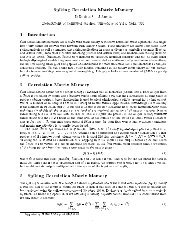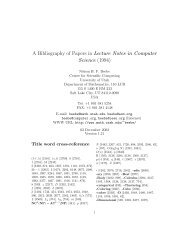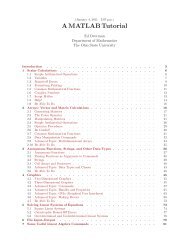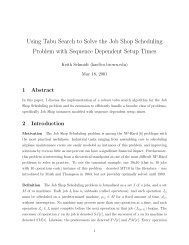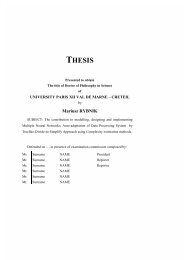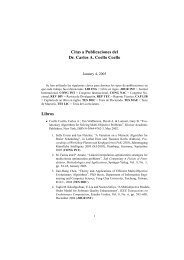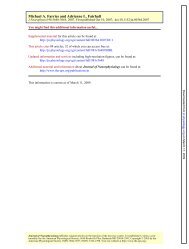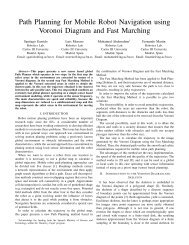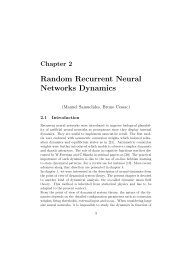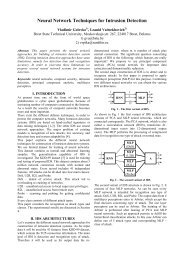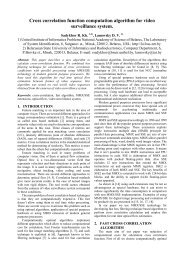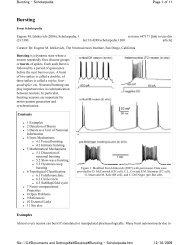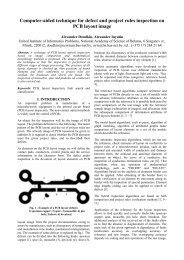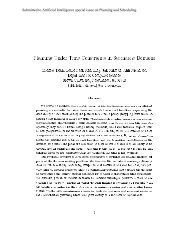NYT-1201: STATE OF THE ART A Thermostat That's Clever, Not ...
NYT-1201: STATE OF THE ART A Thermostat That's Clever, Not ...
NYT-1201: STATE OF THE ART A Thermostat That's Clever, Not ...
You also want an ePaper? Increase the reach of your titles
YUMPU automatically turns print PDFs into web optimized ePapers that Google loves.
t. This is where our leaders need to talk to econ<br />
omists.<br />
Knowing how to talk to economists and other expert<br />
s is an essential skill of good political leaders.<br />
This in turn requires a basic understanding of h<br />
ow experts in various fields think and what they m<br />
ight have to offer for resolving a given problem.<br />
Leaders need to be intelligent “consumers” of expe<br />
rt opinions.<br />
Our current electoral campaigns are not very good<br />
at determining candidates’ understanding of releva<br />
nt intellectual issues. “Pop quizzes” from interv<br />
iewers on historical or geographical facts don’t t<br />
ell us much: those who know the answers may still<br />
have little grasp of fundamental policy questions,<br />
whereas a good grasp can be consistent with a lac<br />
k of quick factual recall. Nor does reading sophi<br />
sticated policy speeches that others have written<br />
or reciting pre-programmed talking points in inter<br />
views or news conferences tell us much about a can<br />
didate’s knowledge. Even quick-thinking responses<br />
in debates may indicate glibness rather than unde<br />
rstanding.<br />
The best evidence of how capable candidates are of<br />
fruitfully interacting with intellectuals would b<br />
e to see them doing just this. Concretely, I make<br />
the follow suggestion for the coming presidential<br />
election: Gather small but diverse panels of emi<br />
nent, politically uncommitted experts on, say, une<br />
mployment, the history of the Middle East, and cli<br />
mate science, and have each candidate lead an hour<br />
-long televised discussion with each panel. The c<br />
andidates would not be mere moderators but would b<br />
e expected to ask questions, probe disagreements,<br />
express their own ideas or concerns, and periodica<br />
lly summarize the state of discussion. Such engag<br />
ements would provide some of the best information<br />
possible for judging candidates, while also enormo<br />
usly improving the quality of our political discourse.



